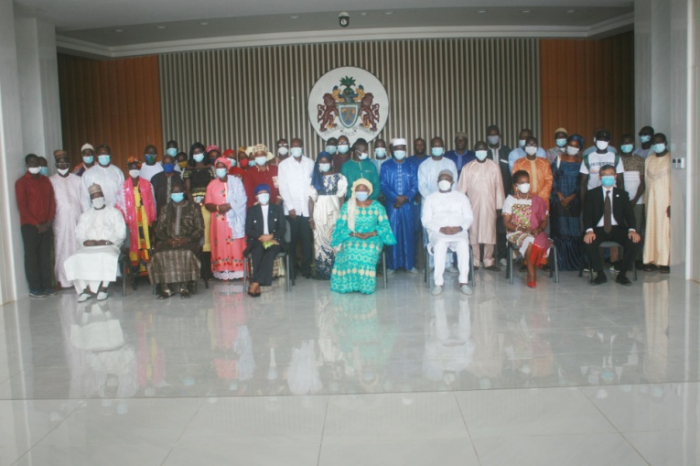
“I challenge you to study them in detail and give them a rigorous critique,” Minister Amie Fabureh said at the daylong National Food Systems Dialogues Pathway validation workshop held at the Sir Dawda International Conference Center, Bijilo last Friday.
She continued “let me remind you that from today the pathway will become a national document. If you don’t give it the due diligence it deserves, the outcome will be poor.”
The Minister expressed delight at seeing delegates from all regions of the country and participants from the thematic working groups as well as the independent dialogues.
Precisely 19th May, 2021 she said the National Foods Systems Dialogues was officially launched and “since then, we have completed seven regional, four thematic working groups and one independent dialogue.”
According to her, the National Pathway consists of several milestones which contribute to the achievement of the Sustainable Development Goals (Agenda 2030).
She therefore outlined the key milestones as “increase access to land, financing and other productive resources for women and youth; increase the efficiency and effectiveness of the health delivery system; exploit sustainably the country’s natural resources base; double food production; coordinate a harmonised policy environment that affect food systems; increase private sector investment in the food systems and respect regional and international fiscal obligations by government of The Gambia.”
Also speaking at the opening ceremony, the United Nation’s Resident Coordinator, Her Excellency Wakana Seraphine, disclosed that the findings from various conducted consultations had been consolidated as the national pathway document to be presented for the validation.
She stated that the UN has supported the entire process thus far working closely with the government of The Gambia every step of the way to ensure all the relevant stakeholders were engaged and consulted.
She noted that the “voices and ideas of women, men, the most vulnerable and the youth are crucial to the reshaping and future our food systems.”
The UN Resident Coordinator further pointed out that covid-19 pandemic has provided a taste of a future at the limits of existence, where people are suffering and governments and economies are struggling to stay afloat.
“Changes in our food systems must happen as they will help limit the impacts of the pandemic and initiate a shift to a safer, fairer, more sustainable world,” she stated and added that the blueprint to recover from this pandemic is the 2030 agenda.
She therefore thanked the World Food Programme (WFP) and the Food and Agriculture Organisation of the United Nations (FAO) for leading UN Gambia’s support in this process. She reiterated the UN System’s commitment to continue this support well beyond the pre-summit and the Summit.
Read Other Articles In National News




